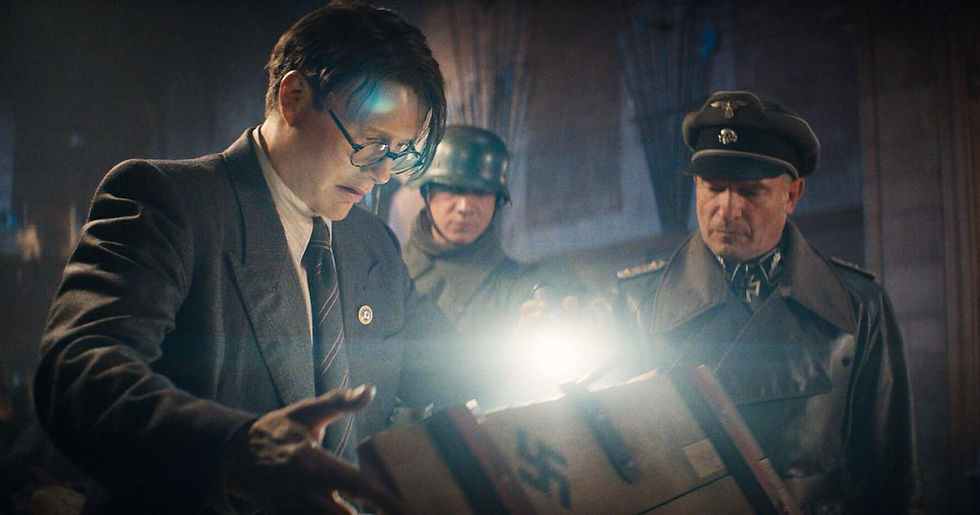Review: Indiana Jones and the Dial of Destiny
- ogradyfilm
- Jan 21, 2024
- 3 min read
[The following review contains SPOILERS; YOU HAVE BEEN WARNED!]

Indiana Jones and the Dial of Destiny is all about the inexorable march of time. When we rejoin our aged protagonist in the film’s “present day” setting of 1969 (following an excessively lengthy prologue that flashes back to 1944), we discover that he has essentially been discarded by life and abandoned by the American Dream. His son is dead—a casualty of the Vietnam War. His wife, inconsolable in her grief over the loss, has filed for divorce. And on top of everything else, he’s being forced to retire from his teaching position at Hunter College. His students are too distracted by news of the recent moon landing to pay attention to his lectures; why bother researching the past when the future is now?
One notable exception to this fatalistic philosophy is Jürgen Voller, a former Nazi scientist employed by the U.S. government courtesy of Operation Paperclip. Still bitter over Germany’s defeat at the hands of the Allies, the not-so-good doktor seeks to acquire Archimedes’ Antikythera, an ancient relic rumored to be capable of literally rewriting history. Mads Mikkelsen navigates the role with aplomb, finding a surprising degree of depth in what could easily have been a flat, two-dimensional villain. No matter how suave, sophisticated, and confident he pretends to be, Voller is ultimately a feeble mathematician, not a soldier; he relies on hired muscle to fight his battles for him—because his own infrequent attempts at gunplay and fisticuffs usually result in spectacular failure.

Phoebe Waller-Bridge’s performance as Indy’s estranged goddaughter Helena Shaw is equally superb. Despite the right-wing blogosphere’s insistence that the Fleabag creator’s “woketevist” politics would ruin the movie, her character is a far cry from the girl power feminist wish fulfillment strawman that they imagined. She is neither morally nor intellectually superior to our hero—on the contrary, she is a compulsive liar and a petty thief; her greed, ambition, and opportunism consistently cause more problems than they solve. Indeed, her arc revolves entirely around gradually shedding her ruthlessly pragmatic, self-serving attitude.
At the end of the day, however, this is Harrison Ford’s show, and his (allegedly) final outing as the iconic archeologist is appropriately poignant. While the actor acknowledges the unavoidable fact of his advanced “mileage,” he wisely refuses to make it the butt of a cruel, shallow joke. Indy is no longer physically fit enough to punch his way out of every conflict, and he is slower to recover from his numerous injuries, but he nevertheless remains as cunning, resourceful, and doggedly determined as ever. But Ford’s true strength lies in his vulnerability; after decades of adventuring—plundering tombs, pummeling tyrants, and witnessing terrible miracles—Dr. Jones has accumulated a great deal of trauma. Normally, he hides his burden well, carrying himself with quiet dignity. Occasionally, though, his façade cracks, allowing the audience to briefly glimpse his repressed guilt, remorse, and regret. These rare, fleeting moments of emotional authenticity are captivatingly beautiful.

Dial of Destiny isn’t perfect, but neither is it the soulless nostalgia bait that many fans were dreading. Regardless of its structural shortcomings, it features actual themes—even John Rhys-Davies’ obligatory cameo appearance serves a clear narrative purpose. And considering the current state of the industry—corporations reducing the art of cinema to digital “content” that exists only to sell subscriptions to streaming platforms—that's got to count for something, dammit!





Comments